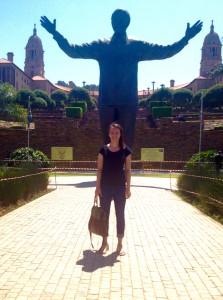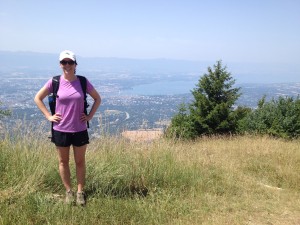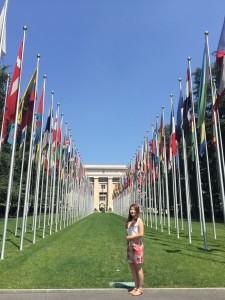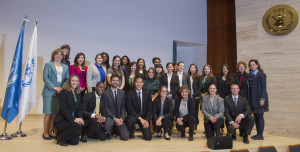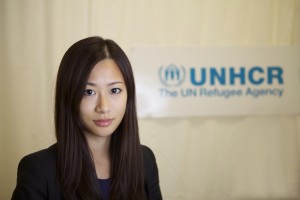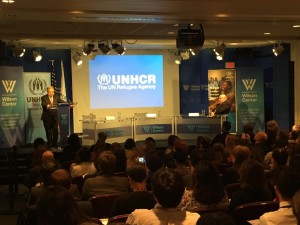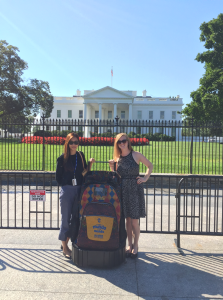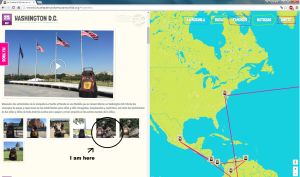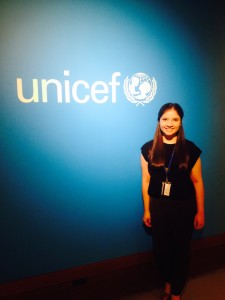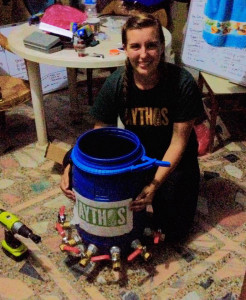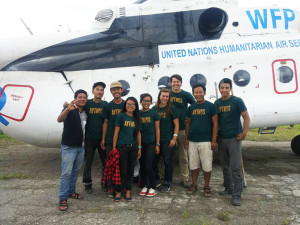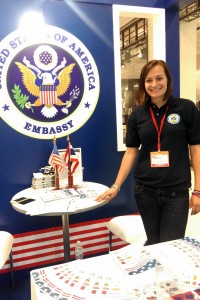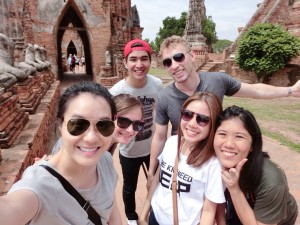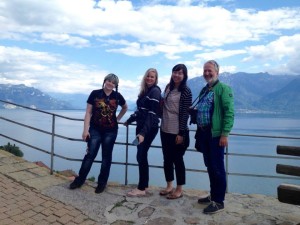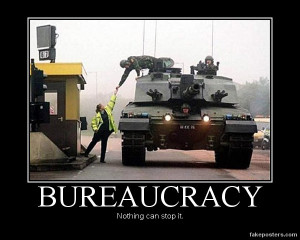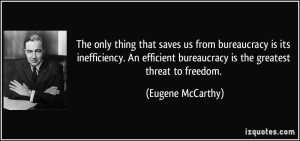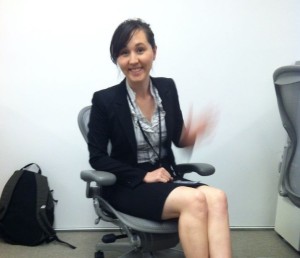Kara Coughlin is a joint MPA/MAIR student who interned at the IOM in Geneva, Switzerland during her summer semester and in Pretoria, South Africa during her fall semester.
This summer I was very fortunate to have the opportunity to intern for the International Organization for Migration (IOM) in their headquarters office in Geneva, Switzerland. I worked within the IOM Development Fund (IDF) on project development, monitoring, and evaluation. The goal of IDF is to provide “seed” money to governments in developing countries for projects that build capacity to better manage migration in the future. These projects focus on developing policy frameworks, training government officials, building infrastructure, raising awareness, and developing guidelines and manuals to better protect migrants and enhance governments’ ability to manage migration in a humane and orderly manner.
Working with the IDF team was an incredible learning experience for me. IDF projects cover a wide variety of migration thematic areas and are implemented in IOM country offices all over the world. As a result, I was able to learn about key migration issues in each region of the world and be in constant contact with IOM staff members from all different country offices. My role was to assist country offices in developing project proposals, as well as edit and review interim reports, final reports, and extension requests. Through these tasks I was able to gain a deeper understanding of how projects are monitored and evaluated, and the importance of designing projects with well thought out indicators.
In addition to reviewing reports, I conducted a review of completed IDF projects that focused on the prevention of human trafficking. The goal of this review was to evaluate methods used for project development and implementation to better inform IDF on how counter-trafficking related projects can be more sustainable. Sustainability is a key factor for IDF and refers to how well governments and relevant stakeholders maintain project outcomes once the IDF funding period is completed. To assess sustainability, I developed a survey that was sent to each country office that implemented one of the 18 counter-trafficking projects being reviewed. I analyzed the data from the surveys and wrote an in-depth report outlining the project characteristics that led to the greatest level of outcome sustainability, as well as the main challenges that these projects faced in maintaining outcomes. Through this project I was able to develop a better understanding of project evaluation and obtain valuable insight into the strengths and weaknesses of methods used to prevent human trafficking.
Interning at the IOM in Geneva gave me the opportunity to use the skills I learned from my courses at Maxwell and gain indispensible knowledge regarding the phases of project development. Through this experience, I was able to seek out another internship opportunity with IOM for the fall semester and am currently in Pretoria, South Africa interning at the IOM Regional Office for Southern Africa. I am very grateful for Global Programs Award for supporting me in these endeavors. These experiences have been pivotal to my educational goals and have given me the practical skills needed to be successful when entering the workforce.
